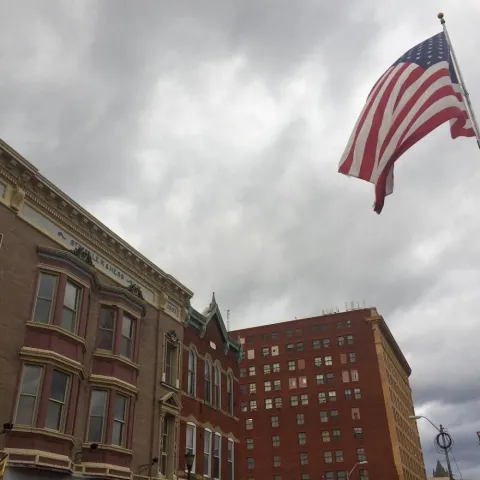Uniontown
The former department store building is a vestige of Uniontown's 20th-century boom era. The city's prosperity was based on the coal and coke industry. A network of interurban rail lines connected Uniontown with smaller outlying communities, gathering commuters and shoppers in the Fayette County seat. The small city boasted a bustling commercial Main Street with several department stores, five-and-dimes, and several impressive movie theaters.
A fire in 1922 cleared the western third of Uniontown's historic block between Gallatin Avenue, Peter and Penn Streets, and Beeson Boulevard, half a block north of Uniontown's Main Street. A small department store, the Fair Store, built a new building on the site in 1924, moving from a smaller building in downtown Uniontown. The Fair Store was a two-story building at the corner of Beeson Boulevard and Penn Street.
Uniontown's Fair Store did not survive the Great Depression. Sears Roebuck and Company bought the vacant building and reopened it as a Sears store in 1934. Sears remodeled the store in 1934, but the exact work done is not known.
In 1951, Sears planned to expand the Uniontown store, acquiring the property to the north between the existing store and Penn Street. T.G. Lehman, an Architect from Newark, New Jersey, prepared the plans, apparently working corporately for Sears. Pennsylvania's Department of Labor and Industry approved the 1951 plans, but the addition was not constructed. In 1956, the plans for the new addition to the Sears store were revised, and the addition was built.In the early 1970s, Sears moved its Uniontown store to the new mall constructed west of town on US 40. In November 1975, a consortium of Uniontown businessmen purchased the building, remodeled it for use as office space, and renamed it Professional Plaza. It served that purpose until 1998.
In December 1998, the owners of the Laurel Business Institute purchased the former Sears store and began plans to rehabilitate the building for use by the school and other tenants.
